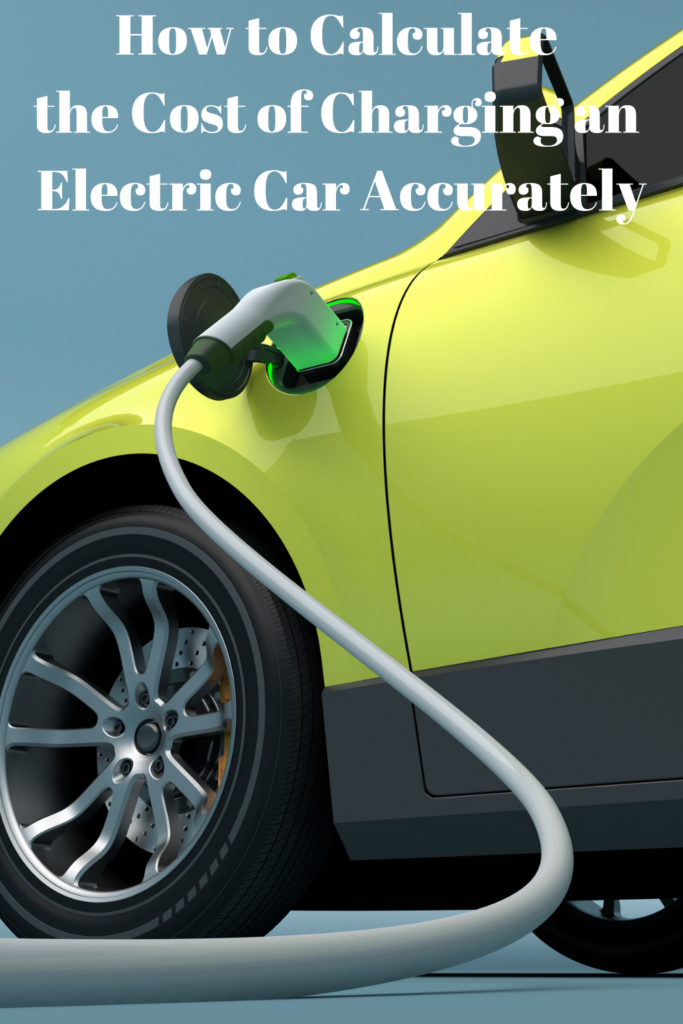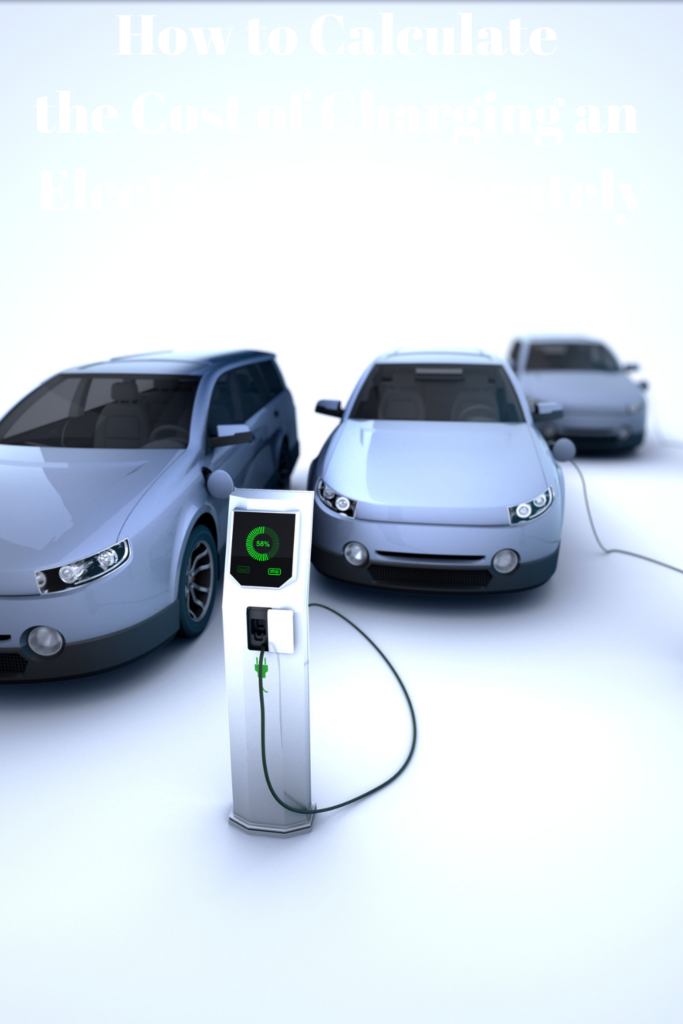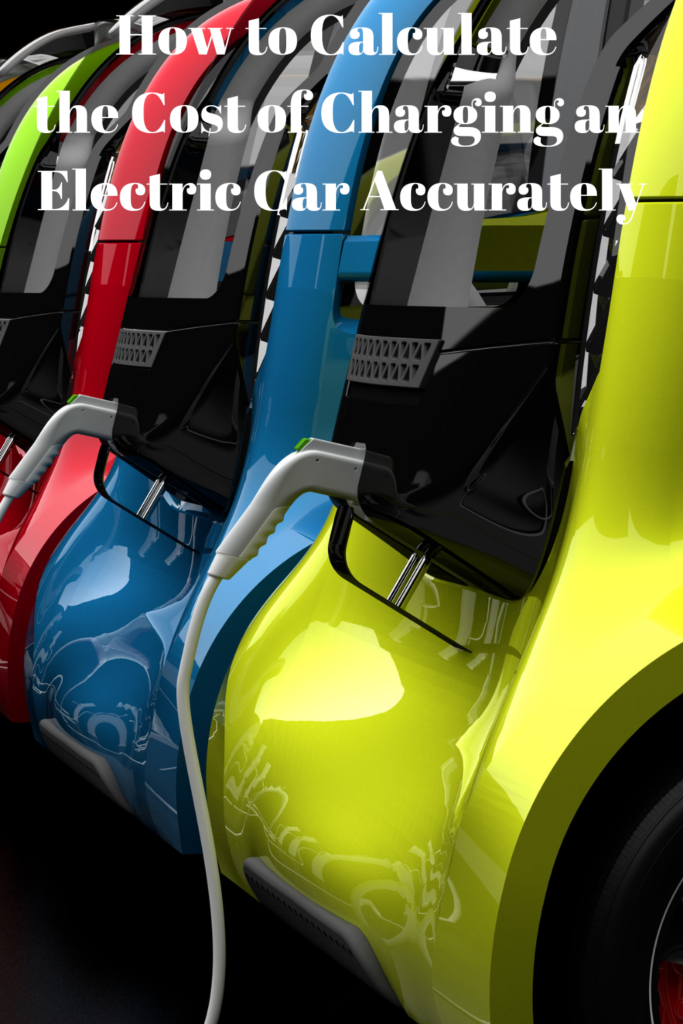Comprehensive Guide on How to Calculate the Cost of Charging an Electric Car Accurately

I. Introduction
A. Importance of calculating charging costs
B. Factors influencing the charging cost
II. Factors Determining Charging Costs
A. Electricity rates
B. Battery capacity
C. Charging efficiency
III. Calculating Charging Costs at Home
A. Gather necessary information
1. Electricity rate (per kilowatt-hour)
2. Battery capacity (kWh)
B. Calculate energy consumption per charging session
1. Determine energy required (kWh)
2. Accounting for charging efficiency
3. Example calculation
C. Calculate the cost
1. Multiply energy consumption by electricity rate
2. Example calculation

IV. Calculating Charging Costs at Public Charging Stations
A. Determine the charging station’s electricity rate
B. Calculate energy consumption per charging session
1. Determine energy required (kWh)
2. Accounting for charging efficiency
3. Example calculation
C. Calculate the cost
1. Multiply energy consumption by the charging station’s electricity rate
2. Example calculation
V. Potential Savings Compared to Traditional Gasoline Vehicles
A. Calculate the equivalent gasoline cost
1. Determine cost per gallon of gasoline
2. Calculate miles per gallon (MPG)
3. Calculate equivalent cost per kWh
B. Compare the charging cost and gasoline cost
1. Example calculation
VI. Conclusion
A. Summary of key points discussed
B. Importance of informed decision-making
I. Introduction
A. The increasing popularity of electric cars has sparked the need to accurately calculate charging costs. Understanding the factors influencing these costs empowers individuals to make informed decisions.
B. Factors that determine charging costs include electricity rates, battery capacity, and charging efficiency.
II. Factors Determining Charging Costs
A. Electricity rates: Electric utilities charge customers for electricity by the kilowatt-hour (kWh). Rates can vary based on various factors such as time of use and location.
B. Battery capacity: The capacity of the electric car’s battery is measured in kilowatt-hours (kWh). This value represents the maximum amount of energy the battery can store.
C. Charging efficiency: Electric vehicle (EV) charging systems may experience some energy losses during the charging process. The charging efficiency is expressed as a percentage.

III. Calculating Charging Costs at Home
A. Gather necessary information
1. Electricity rate: Check your utility bill to find the cost per kilowatt-hour for your home’s electricity.
2. Battery capacity: Refer to the electric car’s manual or consult the manufacturer’s website for the battery’s capacity in kilowatt-hours.
B. Calculate energy consumption per charging session
1. Determine energy required: Multiply the battery capacity (kWh) by the charging level or desired state of charge percentage.
2. Accounting for charging efficiency: Divide the energy required by the charging efficiency percentage.
3. Example calculation: If the battery capacity is 60 kWh, and you want to charge it to 80%, and the charging efficiency is 90%, the energy consumption would be (60 kWh * 0.8) / 0.9 = 53.33 kWh.
C. Calculate the cost
1. Multiply the energy consumption (kWh) by the electricity rate (per kWh) to determine the cost of the charging session.
2. Example calculation: If the electricity rate is $0.15 per kWh and the energy consumption is 53.33 kWh, the cost would be 53.33 kWh * $0.15/kWh = $8.
IV. Calculating Charging Costs at Public Charging Stations
A. Determine the charging station’s electricity rate: Many public charging stations have different electricity rates from residential rates. Check the station’s pricing structure or consult their website.
B. Calculate energy consumption per charging session
1. Determine energy required: Follow the same method as Step III.B.1.
2. Accounting for charging efficiency: Follow the same method as Step III.B.2.
3. Example calculation: Using the same values as in Step III, if the energy consumption is 53.33 kWh and the charging efficiency is 90%, the actual energy consumption will be 53.33 kWh / 0.9 = 59.25 kWh.
C. Calculate the cost
1. Multiply the actual energy consumption (kWh) by the charging station’s electricity rate (per kWh).
2. Example calculation: If the charging station’s electricity rate is $0.30 per kWh and the actual energy consumption is 59.25 kWh, the cost would be 59.25 kWh * $0.30/kWh = $17.78.
V. Potential Savings Compared to Traditional Gasoline Vehicles
A. Calculate the equivalent gasoline cost
1. Determine the cost per gallon of gasoline by checking local prices.
2. Calculate the electric car’s miles per gallon equivalent (MPGe), which represents the distance the car can travel on the energy equivalent of one gallon of gasoline. It’s usually given as a value in miles per kWh.
3. Calculate the equivalent cost per kWh by dividing the cost per gallon of gasoline by the miles per kWh.
B. Compare the charging cost and gasoline cost
1. Multiply the energy consumption per charging session (kWh) by the equivalent cost per kWh to estimate the cost if using gasoline.
2. Example calculation: If the energy consumption per charging session is 53.33 kWh and the equivalent cost per kWh is $0.10, the cost to drive the same distance with gasoline would be 53.33 kWh * $0.10/kWh = $5.33.
VI. Conclusion
A. Calculating the cost of charging an electric car requires considering electricity rates, battery capacity, and charging efficiency.
B. By following the step-by-step instructions and using the provided examples, readers can make informed decisions regarding charging costs.
C. Electric cars can offer potential savings compared to traditional gasoline vehicles, especially when considering the equivalent cost of energy.
